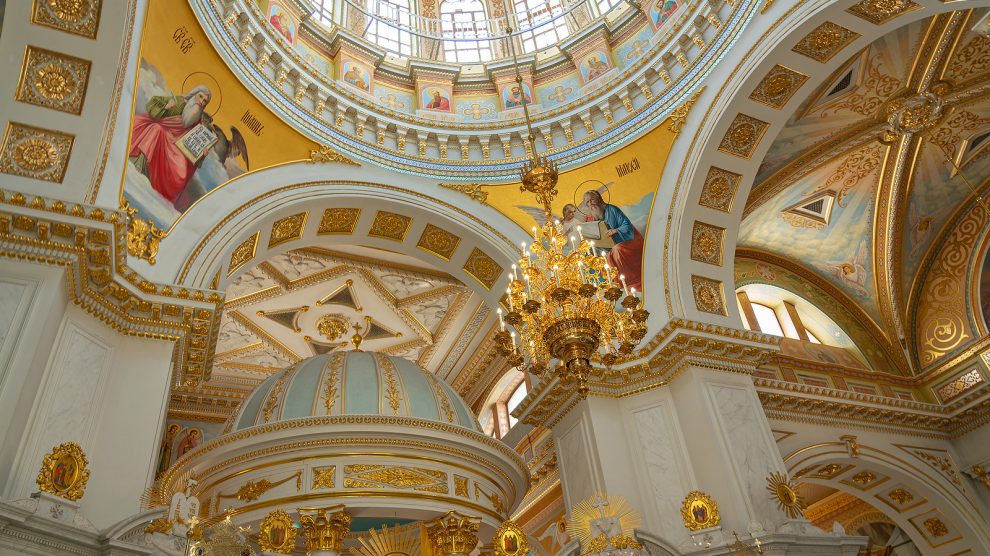A UNESCO listing offers little defence against attacks by regimes determined to destroy priceless cultural heritage.
When UNESCO’s World Heritage Committee decided in January 2023 to inscribe the Historic Centre of Odesa on its World Heritage List, recognising its outstanding universal value and describing it as “the duty of all humanity” to protect it, it was hoped that Russia would be deterred from attacking the site.
“Odesa is a free city, a world city, a legendary port that has left its mark on cinema, literature and the arts. While the war continues, this inscription embodies our collective determination to ensure that this city, which has always surmounted global upheavals, is preserved from further destruction,” said Audrey Azoulay, UNESCO’s director-general, at the time.
- What the end of the Black Sea Grain Deal implies for Ukraine and the world
- For Ukraine, Ryanair’s vote of confidence is welcome news
- Why next winter in Ukraine could be worse than the last
A key Black Sea port, Odesa has been threatened ever since Russia began its full-scale invasion of Ukraine in February last year. It has bombed the city many times but has upped the ferocity and frequency of its attacks since July 21 when it pulled out of a deal that had allowed Ukraine to export its grain by sea despite Moscow’s naval blockade, upending an agreement that had helped to keep global food prices stable.
Early on July 23, Russia carried out its most devastating attack on Odesa yet, killing several people and seriously damaging a number of significant cultural sites, including the Transfiguration Cathedral (pictured above, before last weekend’s attack).
The cathedral, whose roof was almost entirely destroyed by Russian missiles, is the most important Orthodox church in the city, founded in 1794. It was razed by the Soviet Union in 1939 before being rebuilt in 2003.
At least 25 other architectural monuments in the city were destroyed, a regional military official said.
“This outrageous destruction marks an escalation of violence against the cultural heritage of Ukraine. I strongly condemn this attack against culture, and I urge the Russian Federation to take meaningful action to comply with its obligations under international law,” said Azoulay on July 23.
Ukraine’s Foreign Ministry accused Russia of “destroying” the cathedral as part of a campaign to “systematically” harm the Orthodox Church in the country.
“A war crime that will never be forgotten and forgiven,” the ministry said in a statement.
Ukraine’s president, Volodymyr Zelensky, said that, “these missiles target not just cities, villages or people, but humanity and the foundations of our entire European culture.”
‘A war crime’
UNESCO, which since the beginning of the war has already aided repairs to damage inflicted on both Odesa’s Museum of Fine Arts and the Museum of Modern Art, and which has provided equipment for the digitisation of nearly 1,000 works of art and of the documentary collection of the Odesa State Archives, plans to send a mission to Odesa in the coming days to conduct a preliminary assessment of damages.
The organisation also this week pointed out that these attacks contradict recent statements by the authorities of Russia concerning the precautions taken to spare World Heritage sites in Ukraine, and reminded Moscow that, “intentional destruction of cultural sites may amount to a war crime, as acknowledged also by the United Nations Security Council – of which the Russian Federation is a permanent member.”
The Ukrainian Minister of Culture Oleksandr Tkachenko has since called for Russia’s expulsion from UNESCO, accusing Moscow of “endangering peaceful citizens and World Heritage property.”

Recalling Dubrovnik
The plight of Odesa recalls the addition of Dubrovnik, in Croatia, to the UNESCO World Heritage in Danger list in December 1991 following Serb bombing of its historic centre. The city was already a UNESCO World Heritage site, and the Serb bombing campaign was a public relations disaster for the regime of Slobodan Milošević.
UNESCO played a key role in the reconstruction and renovation of the old city which was removed from the danger list in 1998.
Ironically, the Croatian city has in recent years been threatened with removal from the World Heritage list in the wake of overtourism, primarily as a result of featuring in the HBO series Game of Thrones.
In response, in 2019 the city’s council introduced a limit on the number of visitors per day, and the number of cruise ships allowed to dock in the city’s harbour.
Unlike many news and information platforms, Emerging Europe is free to read, and always will be. There is no paywall here. We are independent, not affiliated with nor representing any political party or business organisation. We want the very best for emerging Europe, nothing more, nothing less. Your support will help us continue to spread the word about this amazing region.
You can contribute here. Thank you.


